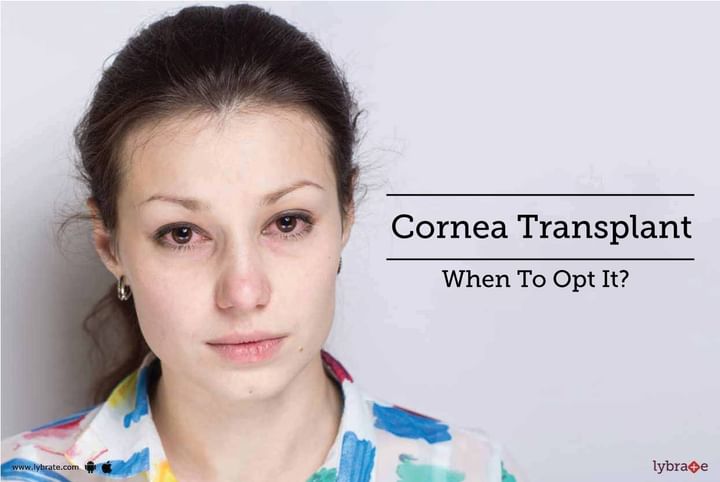Cornea Transplant - When To Opt It?
The cornea is the front layer of eyes that helps in focusing light to see objects clearly. In a cornea transplant surgery, the damaged cornea tissue is replaced by healthy donor tissue. In medical terms, it is known as keratoplasty for a corneal graft. The cornea needs to be clear, smooth, and healthy for a good vision. An unhealthy cornea leads to blurry vision.
Before transplanting cornea, doctors also try to treat the problem with other methods. However, if the condition is not getting better, Corneal Transplantation is advised.
Causes:
A damaged Cornea leads to blurry and changed vision. The damage can affect the daily life of the sufferer. A cornea surgery may need for the following reasons:
-
Change of shape of cornea (keratoconus)
-
Swollen or cloudy cornea
-
Bacterial, viral, or fungal infection in cornea
-
Other refractive surgeries
-
Eye injury
-
Hereditary conditions (dystrophies)
-
Thinning of cornea
Diagnosis:
The cornea can heal itself from minor infections and injuries during which itching, redness, pain, blurred vision, and sensitivity towards light are some common symptoms. But, if it continues for a long time, one should see an eye specialist to determine the severity of the condition and undergo some lab tests. The patients sometimes are prescribed with medications before the surgery depending on the severity of their corneal damage.
Treatment:
Following are the Corneal Transplantation options depending upon the severity of the condition:
-
Full Thickness Corneal Transplant: It is also known as Penetrating Keratoplasty (PK). This transplant is needed when both the inner and outer layers of the cornea are damaged. In this type of transplant, all the layers of the cornea are replaced by healthy tissues. The recovering period of this surgery can take more than a year, which is the longest as compared to the other types of corneal surgeries. It has a higher risk as the immune system of the patient can attack the donor’s cornea.
-
Partial-Thickness Corneal Transplant: It is also known as Deep Anterior Lamellar Keratoplasty (DALK). In this type of surgery, only the outer and middle layers of the cornea are replaced by the new ones. It is done to treat the bulging of the cornea (keratoconus). The procedure and recovery from this surgery take less time than the full thickness corneal transplant.
-
Endothelial Keratoplasty: This transplant is used for post-cataract surgery complications. It is needed when the innermost layer (endothelium) of the cornea is damaged. With this surgery, the innermost layer of the cornea is replaced with the new and healthy one. In this surgery, most part of the cornea is left untouched lowering the chances of corneal rejection past surgery. The healing process of this type of surgery is quicker than the other two.
Post-surgery Prevention:
Some of the preventive measures one should follow after the surgery are:
-
Avoid using electronics like mobile, television, laptop, etc.
-
Avoid rubbing of eyes.
-
Avoid exposure to sun or very bright light.
-
Avoid exposure to dust.
-
Do not use any eye-drops without doctor’s suggestion.
Take Away:
Corneal transplant is indeed a subject of concern and it is an important surgical transplant. The damaged cornea can lead to blindness or very close to blindness condition if not taken seriously. But with today’s technology, one can easily go through the surgery and taking certain precautions leads to a normal healthy life. However, consulting an experienced and skilled cornea consultant for the transplant-related queries is always advisable.



+1.svg)
